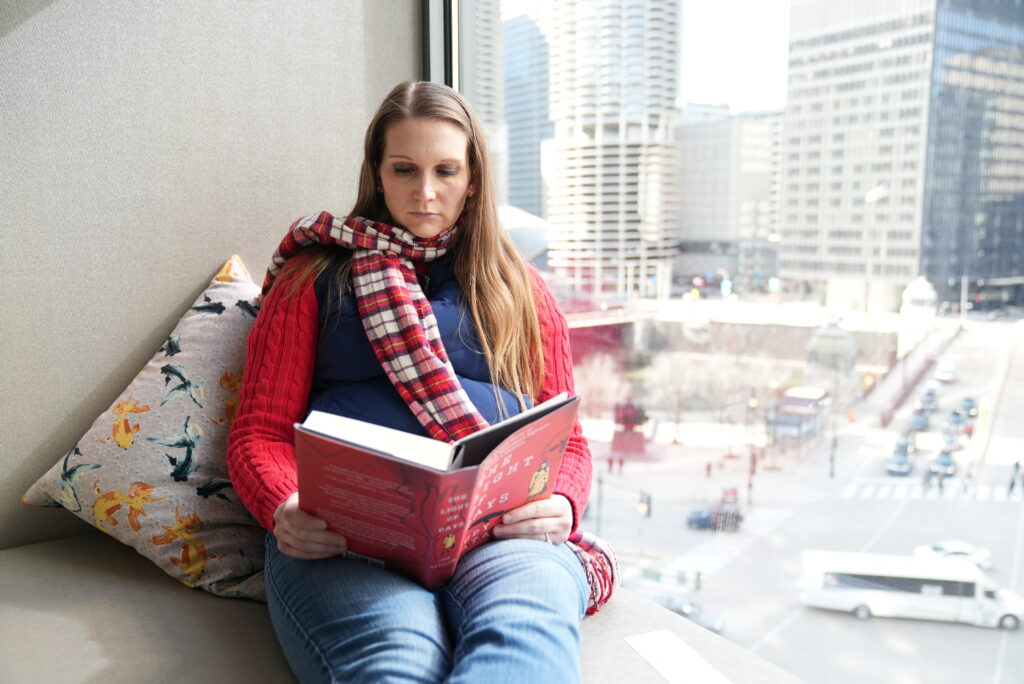The Light of Days: The Untold Story of Women Resistance Fighters in Hitler’s Ghettos by Judy Batalion
The Light of Days: The Untold Story of Women Resistance Fighters in Hitler’s Ghettos by Judy Batalion is my latest World War II read.
This non-fiction book is in chronological order shifting perspectives between the various female fighters, spotlighting one fighter in particular, Renia. During the Holocaust, Jewish factions, many of them led by women, fought the Nazis.
This novel focused on the female Jewish resistance in Poland. Women frequently transported forged documents and led others to safety. Many raised funds for weapons and hosted soup kitchens. They also helped to form some semblance of routine and normalcy for the children by organizing education in the midst of chaos and upheaval.
The Light of Days walks the reader through the events leading up to the ghettos, the resistance, and the fate of many of the fighters (which often included death and transportation to Auschwitz). During the Warsaw Ghetto Uprising, many women fought the Nazis with weapons. The Light of Days astounded me because there were Jewish women who were free of the ghettos and fought to get back in to help!
This book and I were destined for each other. First, I requested this book on NetGalley and was rejected. Then, I entered the GoodReads giveaway. When speaking to my underground book club, I was venting that I was not sure that GoodReads giveaways were even legit because I never won a single giveaway. And I entered hundreds of GoodReads giveaways.
Then, I won this book in a GoodReads giveaway! Woot! Woot!
The historical narrative for Jews in World War II is that the Nazis rounded the Jews up against their will. History casts the Jewish population as helpless against monsters. This book aims to change that narrative. Some Jewish groups actively and forcibly resisted the Nazis and attacked them. They did not go quietly. Many risked their lives, and many did die. For that, I am grateful for reading this book.
This book changed my perception of World War II, It gives voice to the females’ efforts and bravery during a horrific time of unimaginable cruelty.
However, the World War II literary space is very competitive with chilling first-hand accounts in The Diary of a Young Girl by Anne Frank and Night by Elie Wiesel.
Judy Batalion wrote The Light of Days in the third-person perspective to its detriment. Why The Diary of Anne Frank and Night are so riveting is that it feels like Anne or Elie is sitting on the couch next to you, as a friend, recounting their experience and all of their feelings. The Light of Days is a bit light on dialogue, and it reads more like a research article.
The Light of Days also departs sharply from Night and The Diary of Anne Frank in that it rotated between the various female fighters. Again, it was to its detriment. Personally, I would have liked to see one section for each female fighter instead of rotating. Each rotation was really confusing, because there would be an entirely new set of characters, and I would forget where we left off from the previous section.
This book also needed an editor. The multiple errors in this book, a book from a traditional publishing company, surprised me. For example, on Page 16, “What they would be without her?” Clearly, the question is meant to be, “What would they be without her?” There was also a paragraph where it said that a neighborhood was chasing someone when it clearly meant a neighbor.
As mentioned earlier, this book read more like a research article. The author clearly did her research and is quite passionate about the topic. However, storytelling is an art, and The Light of Days might have been better if Judy Batalion teamed up with a ghost writer such as what Jennifer Robertson did with Stephen Kimber in Bitcoin Widow.
In my opinion, the ending of the book should have been stronger. The author ends the book with her personal experience crafting the book. She details her journey researching, translating, traveling, and interviewing people. However, I think that the book should have ended much like a movie, with very short paragraphs about each of the women. Like a gut punch.
Overall, I enjoyed this book very much, and it is important to change the historical narrative around the Holocaust. Strong, brave female subjects always earn extra points in my book. However, the changing perspectives are distracting, and The Light of Days is competing with some extremely compelling World War II literature.

